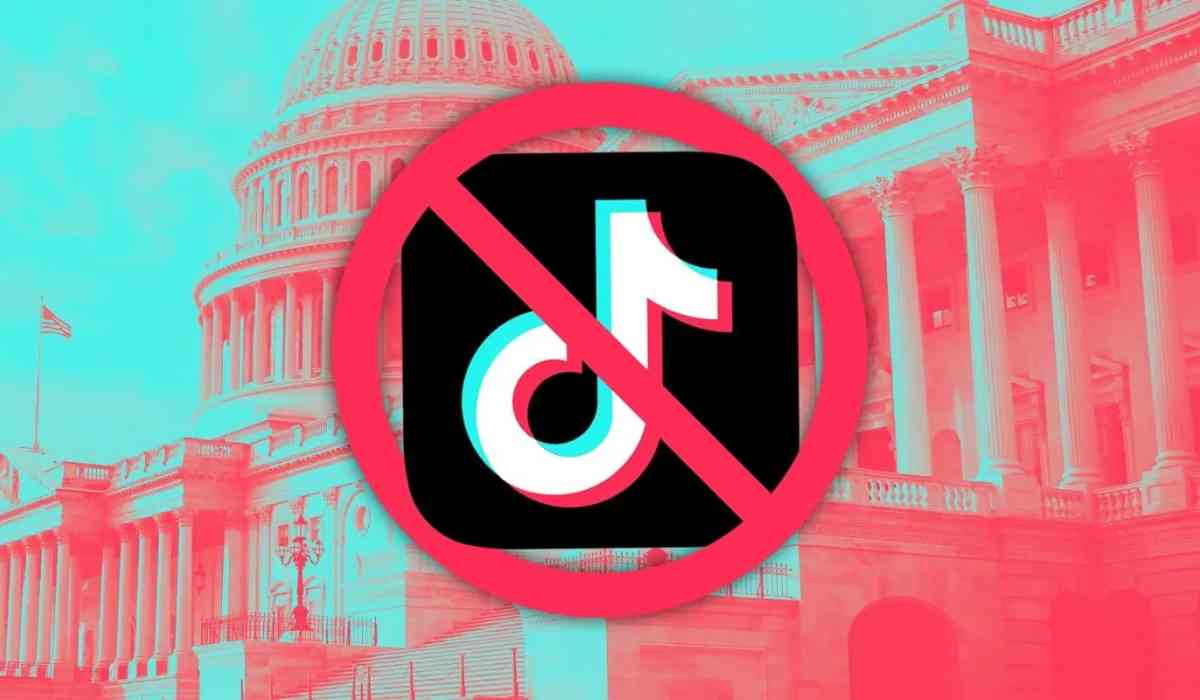The US House of Representatives passed a bill that could ban TikTok in the country, with bipartisan support. The bill passed with a vote of 352 to 65, would give Chinese owner ByteDance six months to divest from US assets or face the ban. The legislation is based on concerns that ByteDance is tied to the Chinese government and that TikTok's data could pose a national security threat.
However, Bytedance has maintained its independence. Opponents argue the move is a knee-jerk effort and falls short of meaningful reform. The bill faces hurdles, including clearing the US Senate and potential competition from different ban versions.
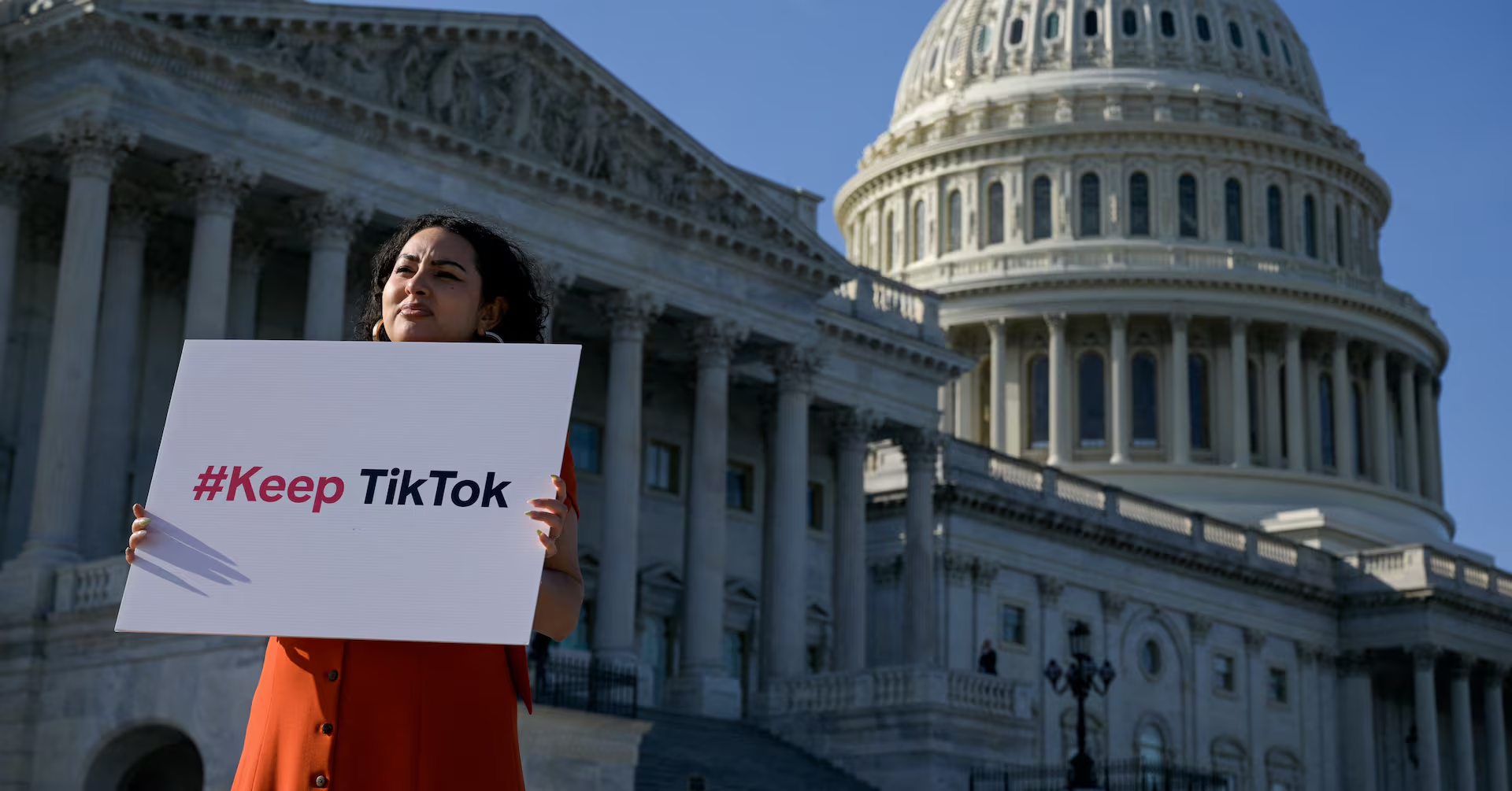
Image Source: Reuters
TikTok Fights Back Against Proposed Ban
As the House prepared to vote, a high-ranking national security official from the Biden administration conducted a confidential briefing with lawmakers concerning TikTok and its potential national security risks. Simultaneously, legislators from both sides of the aisle received numerous calls from TikTok enthusiasts expressing their opposition to the proposed legislation. Notably, several influential TikTok creators converged in front of the US Capitol on Wednesday ahead of the vote, demonstrating their support for the platform. Additionally, TikTok itself released a statement expressing its firm opposition to the impending vote.
TikTok spokesperson Alex Haurek said in a statement, “This process was secret, and the bill was jammed through for one reason: It’s a ban. We are hopeful that the Senate will consider the facts, listen to their constituents, and realize the impact on the economy, seven million small businesses, and the 170 million Americans who use our service.”
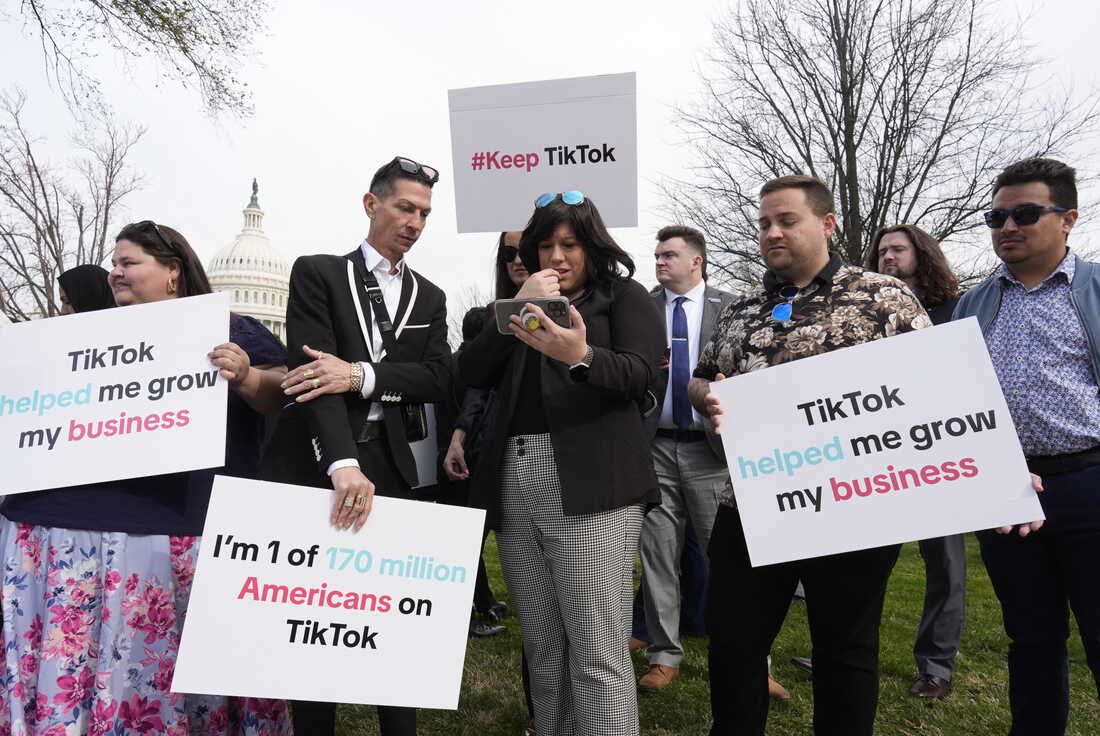
Image Source: NPR
Why does the US want ByteDance to quit TikTok?
The tug-of-war surrounding TikTok epitomizes the ongoing rivalry between the US and China, with Washington's aim to counter potential foreign influence. Concerns linger that ByteDance, TikTok's parent company, might be under the covert sway of the Chinese government, despite vehement denials.
ByteDance insists on its autonomy, yet Chinese authorities have a track record of exerting control over domestic tech entities, fueling suspicions. Marco Rubio, echoing these apprehensions, suggested that every Chinese company, including ByteDance, is essentially a pawn of the Communist Party. He underscored the potential misuse of TikTok's advanced algorithms, which mine user data to tailor content, as a means of influence.
The proposed solution? Divestment. US lawmakers advocate for TikTok's sale to a "qualified buyer," preferably a Western entity, as a means to sever Chinese influence. This stance isn't exclusive to TikTok; it extends to other apps deemed under foreign control, including popular Chinese platforms like Temu and Shein.
This strategic maneuver echoes past actions, such as the forced sale of Grindr, citing national security risks. The fear? That sensitive data could be exploited to compromise American citizens.
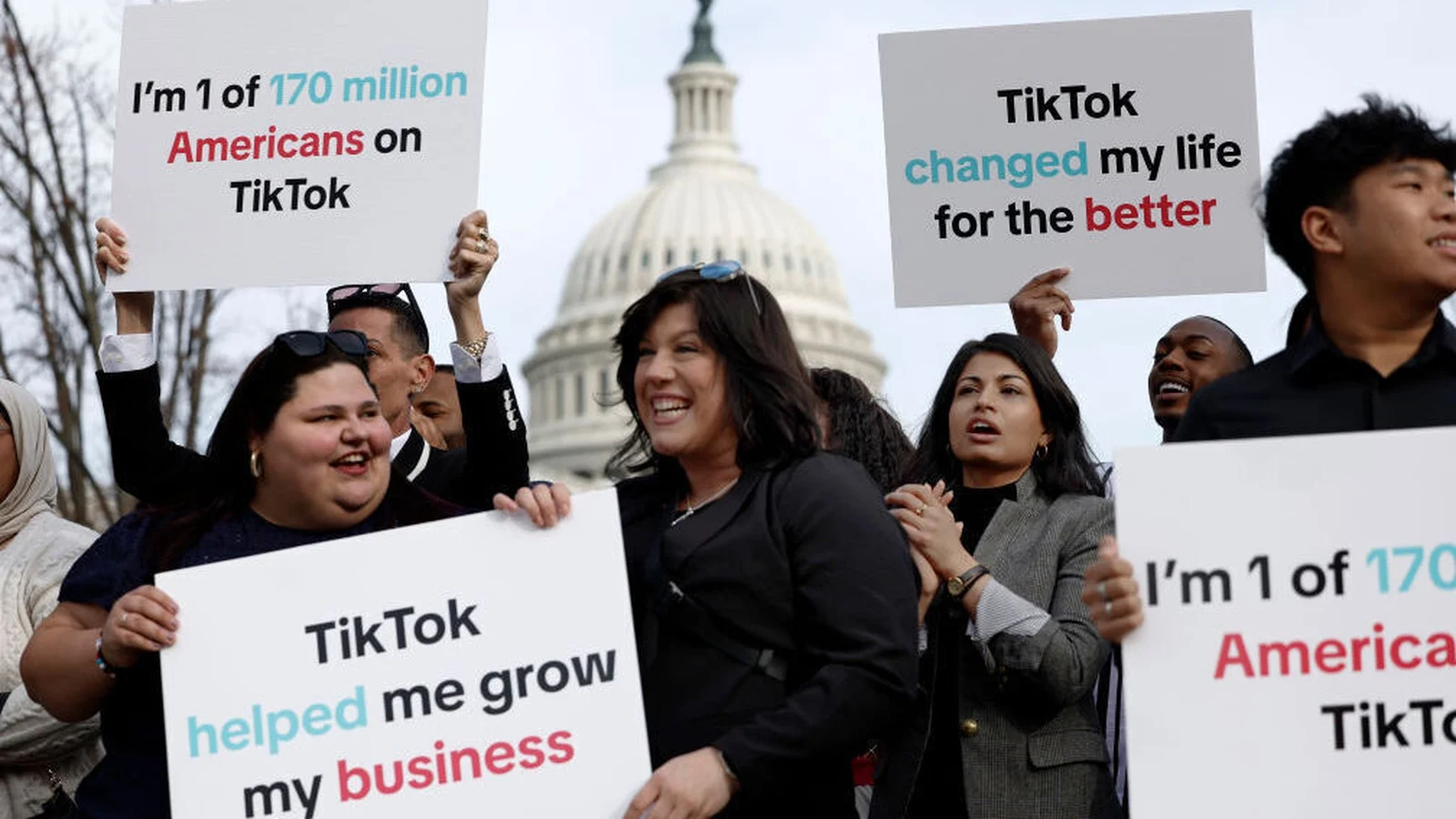
Image Source: NPR
TikTok's Defense: What's the Real Story?
Despite vehemently denying allegations, TikTok's defense has fallen short in the eyes of US lawmakers. Chew, the CEO, faced what many termed as a "disastrous" congressional testimony last year, failing to ease concerns about Chinese influence. With the Chinese government holding a mere 1 percent stake in ByteDance and controlling one of its three board members, skeptics argue that Chew's efforts weren't enough. Some suggest that the hearing was marred by political theatrics, reminiscent of the US "Red Scare" era, with Chew, a Singaporean and military reservist, put under the spotlight regarding his stance on the Chinese Communist Party.
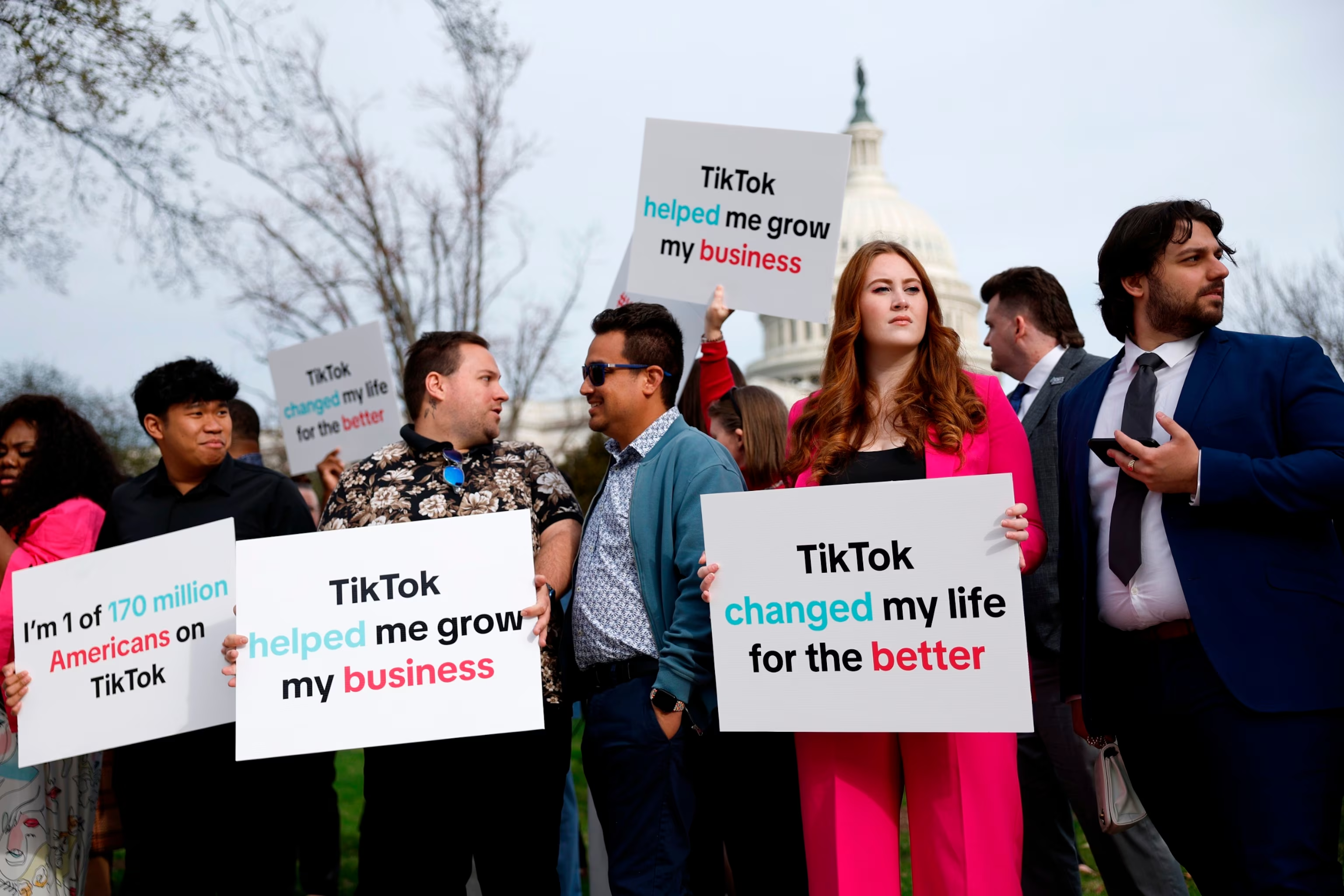
Image Source: ABC News
Will the TikTok Divestment Bill Pass into Law?
President Joe Biden throws his weight behind a TikTok divestment bill amidst Senate Democrats' competing version. The RESTRICT Act empowers the Department of Commerce to bar apps controlled by foreign adversaries, while the House proposes the "Protecting Americans from Foreign Adversary Controlled Applications Act," awaiting White House endorsement. Despite gaining traction, the House bill faces hurdles in Senate approval, especially in an election year with 34 Senate seats in contention. Progress might stall until post-election, and ByteDance retains the option to contest any ban in US courts. Senate Majority Leader Chuck Schumer pledges a thorough review. Notably, bipartisan concerns emerge, with Senators Rand Paul and Kevin Cramer voicing reservations.
LIVE: US House Vote on TikTok Bill
The U.S. House of Representatives is set to vote on March 13 on legislation that gives China’s ByteDance about six months to divest its popular short video app TikTok.
▶︎▶︎ Watch More:https://t.co/KWHoLIRS8l#USHouse #TikTok #ByteDance— Gan Jing World (@GanJingWorld) March 13, 2024
Will TikTok Face Ban in the US if New Bill Passes?
As the House bill proposing a six-month deadline for ByteDance to part ways with TikTok gains traction, concerns rise over a possible ban on the popular platform. ByteDance, the Chinese parent company of TikTok, faces pressure to sell its ownership amidst fears of national security risks. However, Beijing's reluctance to approve a sale to a Western or US-friendly entity complicates the situation. The Chinese Ministry of Commerce has vowed to defend China's interests against what it perceives as unjust suppression by Washington. If the bill becomes law, ByteDance would have a limited window to divest, with legal battles likely to follow any forced sale. TikTok's CEO is gearing up to engage with senators on Capitol Hill, underscoring the high stakes involved in the platform's future in the US.
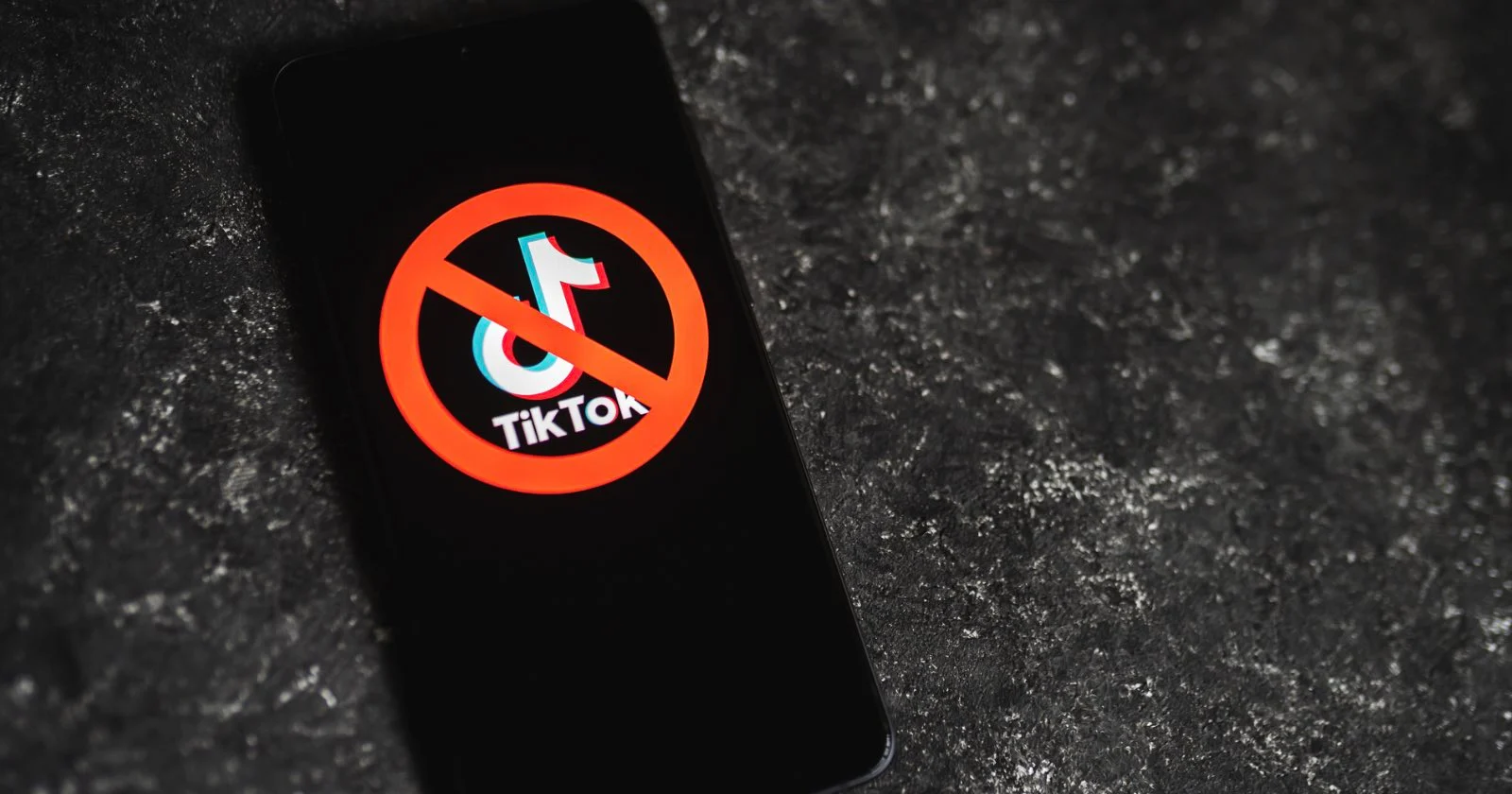
Image Source: X
Should TikTok Spark Concerns?
In 2021, the University of Toronto's Citizen Lab delved into TikTok and its Chinese counterpart, Douyin, seeking signs of political censorship or suspicious activities akin to malware. Their analysis revealed no such evidence. Despite sharing underlying code, tailored adaptations were made for each market. Both platforms implemented restrictions on content tagged with labels like "hate speech," "suicide prevention," and "sensitive." Interestingly, some political keywords faced limitations on Douyin but not TikTok.
However, the Lab flagged customizable features that could potentially intrude on privacy, as these could be toggled via server settings. Beyond these technicalities, TikTok's captivating allure has sparked worries regarding its impact on youngsters, though critics point out similar concerns surrounding platforms like Instagram.
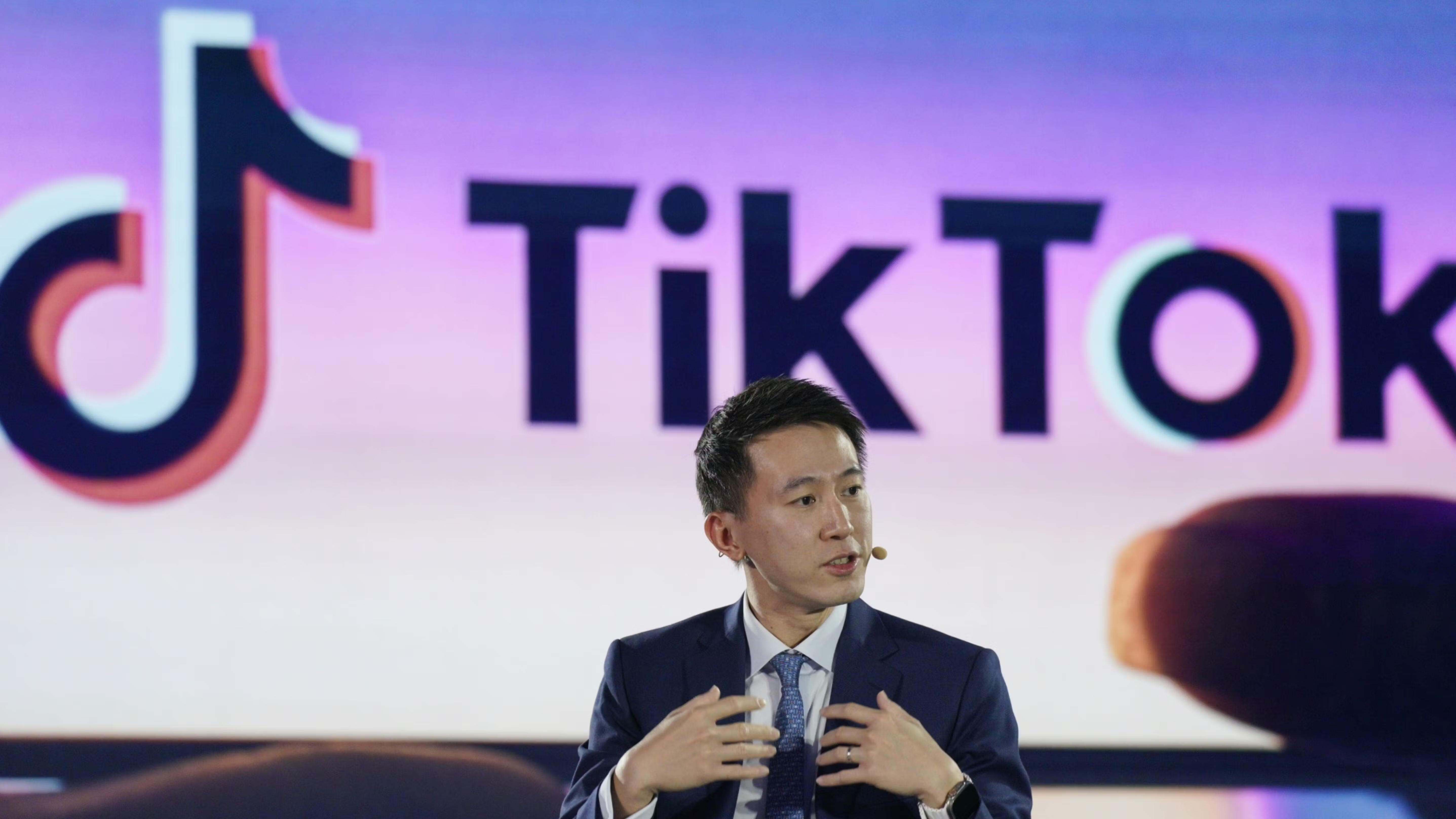
Image Source: X
Who's Standing Against the Proposed TikTok Ban?
Opposition to the TikTok ban emerges from various corners as the US government contemplates its prohibition. The proposed bill raises concerns regarding free speech and public access to vital information. Critics contend that such a ban would infringe upon the First Amendment rights. Ashley Gorski, a senior staff attorney at the ACLU’s National Security Project, asserts that a blanket prohibition on TikTok may not be the most effective remedy, citing the lack of substantial evidence indicating significant national security risks.
Moreover, critics point out the potential hypocrisy in solely targeting TikTok, especially in light of the company's controversial policies and the hefty fine imposed by the EU for privacy breaches last year.
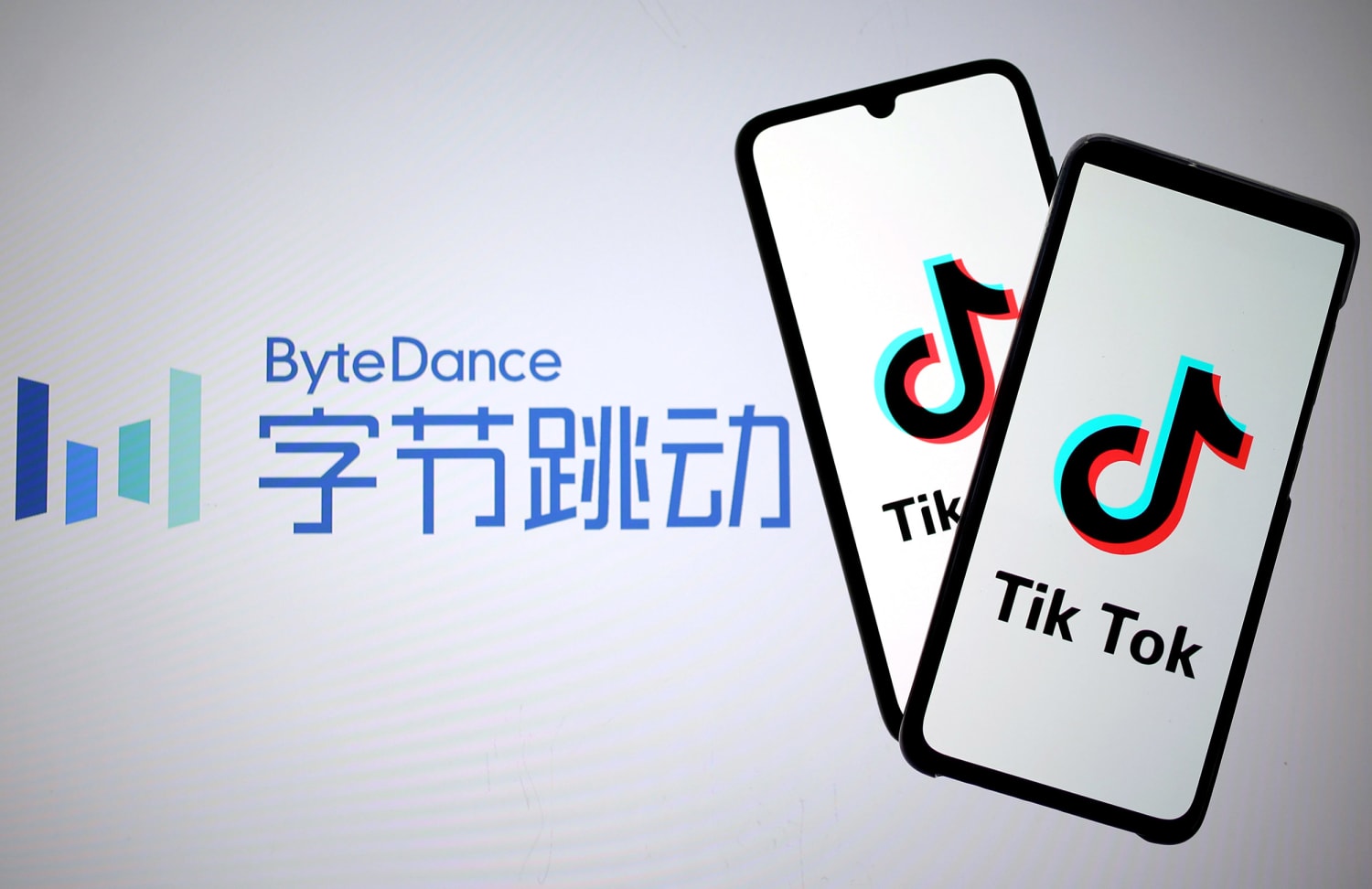
Image Source: Fox News
TikTok's Global Scrutiny: Who's Saying No?
TikTok isn't just facing scrutiny in the US. Nepal and India have outright banned the platform. India's move is particularly fueled by geopolitical tensions with Beijing.
Several other nations, including Afghanistan, Australia, Belgium, Canada, Denmark, the Netherlands, New Zealand, Taiwan, the UK, and EU governance bodies, have prohibited the app's use on government devices. Pakistan and Indonesia are also navigating restrictions on TikTok access.
The EU, known for its crackdowns on Silicon Valley giants, has opened a formal investigation into TikTok focusing on content, advertising, and its impact on minors. Earlier, the EU fined TikTok $370m for privacy violations.
As TikTok continues to face challenges worldwide, its future remains uncertain amid growing concerns about its influence and practices.
© Copyright 2024. All Rights Reserved Powered by Vygr Media.

